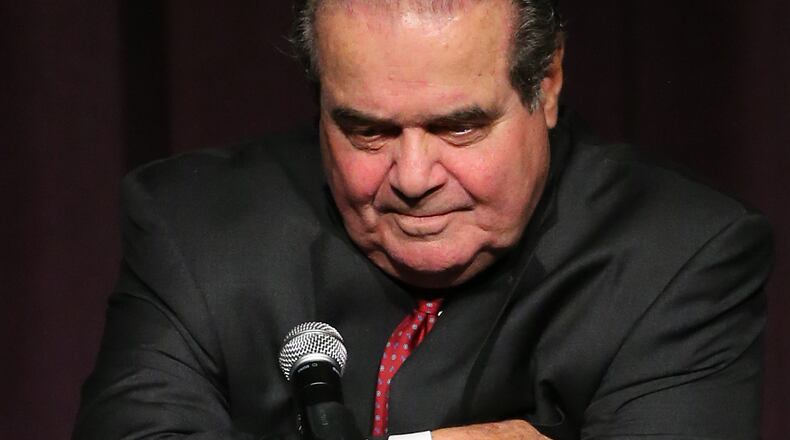U.S. Supreme Court Justice Antonin Scalia, 79, has been found dead of natural causes at a resort ranch in Texas.
Scalia, blessed with a sharp intellect and a still sharper pen, had been a powerfully conservative fixture on the court since his 1986 appointment by Ronald Reagan, but in recent years he had become increasingly eccentric and openly partisan in his opinions. His vote was still important, but he seemed to exert less and less influence over his fellow justices.
Nonetheless, the political and legal ramifications of his death will be profound.
Under the Constitution, President Obama will nominate a replacement for Scalia, which the Senate will then have to confirm. And since replacing the hard-right conservative Scalia with an Obama nominee would shift the court from a 5-4 conservative majority to a 5-4 liberal majority, I have a hard time imagining that the Republican-led Senate would take action between now and next January.
In fact, Senate Majority Leader Mitch McConnell has already made clear that the Senate will refuse to perform its constitutional duty for the next 11 months.
“The American people should have a voice in the selection of their next Supreme Court justice," McConnell said in a statement. "Therefore, this vacancy should not be filled until we have a new president.” The truth is that the American people expressed that voice in the 2012 election by returning Obama to the White House until January 2017. But McConnell once again continues to refuse to honor the voters' choice.
As a result, until May or June 2017 at the earliest, we're likely to have an eight-member Supreme Court, split down the ideological middle and adding to the sense that our governing institutions have been rendered inoperable by political division. A high-stakes presidential election and an important battle for control of the U.S. Senate now take on even more importance.
About the Author
The Latest
Featured



